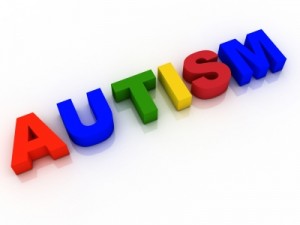Mother of David*, age 18, describes improvements after neurofeedback sessions:
"David is almost nineteen years old. At 245 pounds, he’s a big boy. Sometimes he acts like a giant 3 year old, although he can find any obscure website effortlessly. His interests range from sports to Bill Nye to obnoxious games and comedy shows. Which he likes to repeat. A lot. His biggest problem is expressive language. All the words seem to be in there, but they don’t come out in the form of sentences. Besides, as far as he’s concerned, I’m psychic, so communicating in short hand is adequate.
We’ve done the usual gamut of therapies – special diets, supplements, sensory therapy, acupuncture, homeopathy, and even the drug rout when he was younger. The drug therapy made him easier to manage in school but nothing else. Diet and supplements improved his overall health - he has asthma - but it wasn’t enough to boost his language, and he had a number of residual problems that didn’t budge, including chewing on his hands and toe walking.
David’s toe walking wasn’t very obvious. I doubt he was even off his heels by half an inch. Being up on his heels for years have given him calf muscles a linebacker would envy. His gait is awkward, which is odd for a child so in love with sports and generally well coordinated. Nothing would bring his heels down, not even bribery. In only a few sessions, the toe walking stopped and his gait is much more normal now.
His hand chewing is partly a result of anxiety but also seems to be a physical response of some kind. He never broke the skin, but he developed calluses’. Again, a few sessions of neurotherapy, and whatever was bothering him abated. It’s now very rare to see him chew his hands. Bit by bit he’s developed greater independence, and I don’t have to prod him much. For awhile when he was frustrated, he was tearing shirts. (I blame Hulk Hogan for that one.) Over the years we lost a number of windows to thrown objects and couches due to bouncing. One of the more common comments I’ve received over the years how does he keep his weight up, since he was always in motion. He’s been calming down noticeably over the course of the year. He’s less frustrated now, probably because he’s more connected to his environment. When we couldn’t go swimming at the local pond because of an impending storm, he took the news calmly. I’ve even caught him sitting quietly outside.
The nonproductive TV talk is no longer a constant presence. In fact, I’ve had trouble locating him in stores and at the library a few times because he wasn’t doing his familiar TV talk. I’m also not repeating myself as much. Language seems to be making more sense. He sometimes felt he was being yelled at when I was talking to someone else, and he would get very upset. This doesn’t happen nearly as much anymore. David has auditory processing problems. In fact, when he watches TV, he puts on closed captioning, something that he figured out by himself. There are times when David seems to be functionally deaf. His hearing has been checked twice, so it should be fine, however, words haven’t always registered very well. He also has the common quirk of not understanding how pronouns work. Over the past year, the pronoun confusion hasn’t always been present. His awareness for spoken words has increased, and there are times when he’s actually spoken appropriately in short bursts, using his real voice and his own sentences, and not something he’s heard on the computer or TV.
At eighteen, he has a lot of habits to unlearn, but most young adults with autism are not progressing at this point. He’s still moving forward, and neurofeedback is responsible for that."
What is your child’s diagnosis and/or conditions for which you sought neurofeedback?
"My son, David*, was diagnosed with autism when he was about two and a half. He also has auditory processing problems to the degree that he can appear deaf at times, unless you say the magic word ‘pizza’. His hearing has been tested twice and it is normal, but he has serious problems following conversation. When he watches TV, he puts on closed captioning. When he was little, he used to put his ears against the TV speakers. He covers his ears for certain noises. He has a very serious language deficit, including word retrieval issues. In the past, he demonstrated tactile defensiveness, some sensitivities to light, chewing or mouthing his hands (but not breaking the skin), and toe walking. In short, he has most of the classic characteristics of autism, although he is also very affectionate. I have been told he doesn’t have ADHD, he certainly appears that way at times. He’s very restless, and while he can read without difficulty, he doesn’t have the patience to read.
The toe walking has disappeared, and this only took a few sessions. He’s calmer now, and I’ve observed him actually sitting still outside. In the past, this was very rare. The chewing is virtually gone, only appearing now when he’s anxious. He seems to listen better when I speak to him, and now and then makes appropriate comments, rather than resorting to TV talk. The TV talk has backed down considerably. If his body wasn’t in motion, his mouth certainly was. There are moments, and they’re now stretching into many minutes, where he is actually quiet. My usual way to find him in stores was to listen for his TV talk, and that’s not a reliable method anymore. Although I didn’t seek help for his temper – usually its pretty even – there have been times when he’s lost it. He developed the annoying habit of ripping his shirts when he’s frustrated. That behavior has become rare. He’s had a few minor obsessions that have abated, a fondness for Paula Abdul tap dancing being the most annoying. He was fascinated with her shoes, in part because they sparked and changed color in a video. Somewhere along the line he decided we could duplicate the special effects, so he would nag at me to tap dance. (I don’t dance.) That has almost completely faded out, and it was pretty entrenched for several years."
How quickly did neurofeedback work?
"The toe walking was gone in about four sessions. I saw him starting to calm down after about six sessions. Since he’s nineteen, he’s had many years to learn how to be autistic. There were some autistic traits that he developed only after being in school with other autistic children, the t-shirt tearing being a primary example of this (he was mainstreamed during his elementary school years). All this means he has more to unlearn than a nine year old would. For an autistic young adult, he can be very typical. He doesn’t have many of the quirks that his peers have. Even though his expressive language skills are poor, he can easily entertain himself, he can be very social, especially if it gets him something he wants, and he likes typical teenage things: hip hop music (to my horror) and sports. Unlike some of his peers, he didn’t fall into autism dramatically, but slid slowly. He’s making his way out of autism slowly. What hooked me on neurofeedback was that I couldn’t break his toe walking, not even by bribery or rewarding him for a normal gait. He was always up on his toes, but only by about a half an inch. His calf muscles are so solid that if you kicked him, you’d hurt yourself. The toe walking threw his gait and posture off to the point that I was concerned that he was going to have some serious problems down the road. If David* wants candy and soda, both of which he loves, he has to earn money, and he will do just about anything for money except eat veggies. He couldn’t change how he walked for any length of time, and various therapists couldn’t break him of it either. Neurofeedback knocked it out effortlessly.
I can see how he’s slowly becoming more connected to the world around him. In general, he’s easier to be with, and has occasionally demonstrated some impressive patience. The summer after starting neurofeedback, we were coming back from a vacation in the wilds of Virginia, and the limo company didn’t pick us up as scheduled to take us to the train station. I was losing my patience. He remained calm after unanticipated delay of about an hour and a half. That was a first."
What led you to neurofeedback?
"I saw a demonstration, and I knew a parent who had her two children treated with neurofeedback, and she said it made a difference in how they functioned at school. Besides, I’ve tried everything else. It’s one thing if you believe your child will never be independent. Its entirely different when occasionally the universe lines up and you see your child functioning just like everyone else. There are moments when David* is on track. My goal is to increase those moments substantially.
I have an added incentive to see that David maximizes his potential. I work in a building that houses a day program for adults with developmental disability, and most of them have autism. I know how restricted the lives are for adults on the autism spectrum. I want more for my son than living in a group home and delivering phone books or raking leaves. The autism rate in Massachusetts is 1 in 122. The resources are thin now, and they will get worse as more children reach adulthood. The less dependent on state services, the better off David will be.
I know a parent who was desperate to find someone who help take care of her 38 year old. His living arrangements fell apart and he ended up back home. He was hard to handle, and he couldn’t really be left alone. The parents were in their sixties, and it was a struggle for them. I don’t ever want to be in such a vulnerable position. Because of all the work I’ve done with David, that won’t happen."
Would you recommend neurofeedback?
"Most certainly. I’m very active in autism circles. I know parents who give up way too soon. I’ve seen children regress further – something that isn’t discussed very often, but is a real possibility. I saw one little boy when he was about five. He smiled at me and looked around with curiosity while his father held him. From that brief encounter, I wasn’t even sure if he had autism. When I saw him next, he was eleven. He no longer smiled and was no longer curious. He just wandered about, unable to even play catch with his father. His mother told me that he was probably going to go residential the next year because she could no longer cope. This was a safety issue. The mom was very petite and wouldn’t be able to restrain him if he ran into traffic. A good friend’s brother stopped talking when he went residential upon reaching adulthood. He’s now in his late forties, and the family has been worried about his care since he’s shown up with bruises. They’re probably innocent accidents, but there’s no way to know for sure, and he can’t tell them.
I was speaking to one mother of a twelve year old girl who was largely non-verbal, although there are flashes of language, and in sentences at that, when she’s angry enough. I mentioned that the child is beautiful, and she really is. A few moments later, she trotted over to me, gave me a brief hug, and ran away again. This was not typical behavior. Her mom was afraid she was going after my yarn, since she has a thing for string. She heard what I said and understood. For a moment, the universe lined up for this child.
Dr. Ross describes neurofeedback as the last stop on the train. This is where parents come when they’ve exhausted all other methods. Whatever can be done to give autistic children and adults greater independence and more control over their lives is worth the investment in time and money. The more independent, the safer our children are. Neurofeedback helps the brain to function better, to process all that information that might be overwhelming or lost, and turn it into meaningful experiences. In short, it helps the universe line up."
Would you be interested in helping to get the word out?
"I’ve sat with more than one mother who has reached the end of her rope. I’ve also been on the phone with frustrated parents who don’t know what to do. It’s not what you do to help that haunts you later in life. What haunts you is you might have missed a therapy that would have made a difference. My son was born in Connecticut, and he’s a year too old for the state’s autism program. He never had ABA or Floortime. I don’t know if they would have made a difference, but they might have. That bothers me. This was before the internet really hit, so it was very hard to obtain credible information. Now there’s so much information they need to make the best decisions for their child."
*Names have been changed to protect patient privacy.
For information about how neurofeedback can help reduce symptoms of autism, schedule a free consultation with our director Dr. Jolene Ross.








